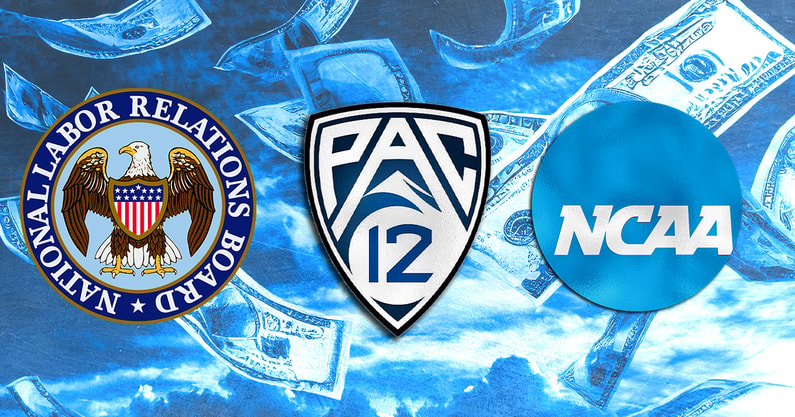After Dartmouth case, why stakes are higher in NLRB trial against USC, Pac-12, NCAA

As the implications of a National Labor Relations Board (NLRB) regional director’s decision on Dartmouth’s men’s basketball players continue to reverberate nationwide, an even more significant development on the employee front is gathering steam in Los Angeles.
That’s where two weeks of testimony concluded inside a regional office Friday in the trial involving USC, the Pac-12 Conference and the NCAA, with the hearing scheduled to resume on Feb. 26. The case alleges the three charged parties are joint employers of USC’s football and men’s and women’s basketball players.
Here’s one reason why it is potentially more consequential than the Dartmouth case: The National Labor Relations Act applies to private institutions. But because the Pac-12 and NCAA are charged with being joint employers, the outcome could potentially open the door for athletes at public universities to be deemed employees of their conference or the NCAA.
The three charged parties are alleged to have unlawfully misclassified scholarship and walk-on football and men’s and women’s basketball players as student-athletes rather than employees and maintained certain unlawful rules in the USC Student-Athlete Handbook.
In the wake of the Dartmouth decision – which deemed the players employees and ordered a union election – one prominent college sports administrator told On3, “I imagine this will now be the same outcome in the USC case.”
The issue of control weighed heavily in the Dartmouth ruling – which can be reviewed by the NLRB and then a federal appeals court – with the regional director stating, “Dartmouth exercises significant control over the basketball players’ work.”
More experts say athletes will be deemed employees
To that point, the same rationale could bolster the contention that USC’s revenue-producing athletes are employees.
Top 10
- 1Breaking
Shedeur Sanders not drafted
Slide continues
- 2
10 Best Available Players
After Rounds 1-3 of NFL Draft
- 3
Picks by Conference
SEC, Big Ten continue to dominate Draft
- 4Hot
Jalen Milroe
Drafted before Shedeur Sanders
- 5Trending
Shedeur Sanders
Reportedly pranked by fake NFL team
Get the On3 Top 10 to your inbox every morning
By clicking "Subscribe to Newsletter", I agree to On3's Privacy Notice, Terms, and use of my personal information described therein.
“I think it certainly strengthens the case at the higher levels,” Tulane sports law professor Gabe Feldman told On3, “where they are exercising more control, there is more pressure, there is greater travel and there are more benefits and compensation headed their way.”
Michael Hsu, co-founder of the College Basketball Players Association (CBPA), fully expects athletes from revenue-producing sports to be deemed employees. The big question, he said, will be whether compensation will be a factor for athletes in Olympic sports as well.
“There is also a chance they [NCAA] don’t keep fighting this, they see the writing on the wall, and they can figure out a way to preserve most of their interests by allowing this [employee model] to happen,” Hsu said.
The NCAA has long lobbied Congress to codify that athletes are not employees, while Hsu himself has ignited more legal fires on the employment front.
The NLRB Region 13 Chicago office is investigating an unfair labor practice charge filed on July 10 by the CBPA against Northwestern. The NLRB Region 25 Indianapolis office is investigating an earlier charge filed by the CBPA against the NCAA.